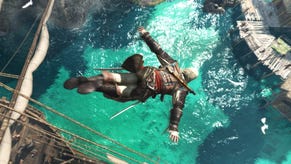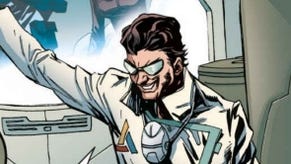Ubisoft reportedly remaking pirate adventure Assassin's Creed: Black Flag
Skull and Bones studio "heavily involved".
While it continues struggling to get one pirate adventure out the door - by which I mean its very long-in-the-works Skull and Bones - Ubisoft is reportedly prepping another: a remake of its rum-soaked high seas gem, Assassin's Creed: Black Flag.
News that Ubisoft has finally decided to give everyone what they more or less wanted in the first place comes via Kotaku, which claims, citing two sources familiar with the publisher's plans, that the remake is "still in its earliest stages".
Ubisoft Singapore - the same studio still trying to finish the embattled Skull and Bones - is "heavily involved" with the project, which isn't expected to complete "for at least a few years".
Assassin's Creed: Black Flag, the fourth mainline entry in Ubisoft's occassionally ludicrous history spanning saga, released back in 2013, dumping the series' well-worn stealth-action template into the Golden Age of Piracy. Silly future interludes aside, it was an absolute treasure, whisking players - as the charmingly roguish Edward Kenway - away for a sun-drenched pirate adventure across the Caribbean, with thrilling high seas exploration and combat thrown in.
Kotaku's sources haven't revealed how extensive a remake Assassin's Creed: Black Flag might be in order to account for the ten-year gap between releases, but as long as Ubisoft doesn't try replacing the pirates with Tom Clancy's battle royale NFTs, I am absolutely there.
As for Ubisoft Singapore's other pirate game, Skull and Bones - which notably started life as a Black Flag expansion - it was most recently set to arrive this March, but Ubisoft delayed the game indefinitely following disappointing financial results in January. It resurfaced during Ubisoft's Summer Game Fest showcase earlier this month, when the publisher revealed Skull and Bones would get a closed beta in August.
Kotaku, citing an internal email it's seen, says management at Ubisoft Singapore is currently forcing all developers on the game to work in the office rather than remotely - while seemingly encouraging staff to stay later and work longer hours - in order to get the closed beta complete.










